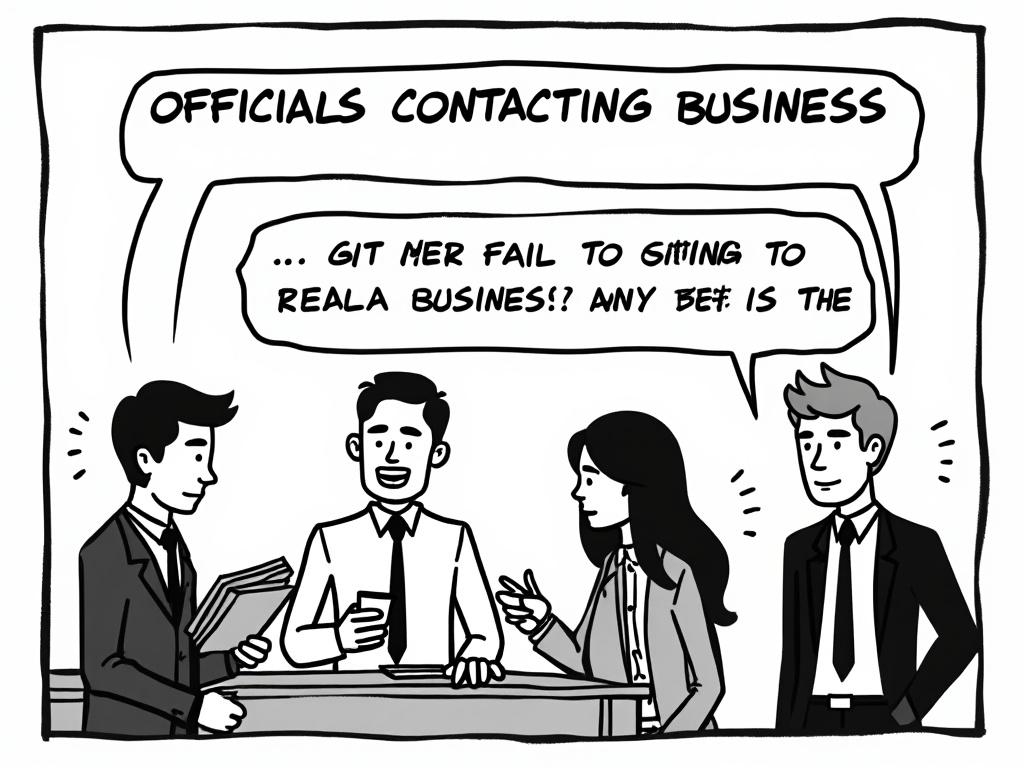
Mastering UAE Government Communication: Your Essential Protocol Guide
Reading time: 12 minutes
Ever wondered why some business professionals effortlessly navigate UAE government channels while others struggle for months? The secret isn’t luck—it’s understanding the intricate protocols that govern official communications in one of the world’s most dynamic business hubs.
Table of Contents
- Understanding the UAE Government Hierarchy
- Official Communication Channels
- Essential Protocol Requirements
- Practical Communication Strategies
- Overcoming Common Challenges
- Measuring Communication Success
- Your Strategic Communication Roadmap
- Frequently Asked Questions
Understanding the UAE Government Hierarchy
Here’s the straight talk: Successful government communication starts with understanding who holds the keys to decision-making. The UAE’s federal structure creates multiple layers of authority, each with distinct communication protocols.
The UAE operates on a three-tier system: Federal, Emirate, and Local levels. At the federal level, you’ll encounter ministries handling nationwide policies. Emirate-level authorities manage regional affairs, while local departments handle day-to-day administrative matters.
Federal Government Structure
Federal ministries like the Ministry of Economy, Ministry of Foreign Affairs, and Ministry of Finance control broad policy areas. Quick insight: When your matter involves inter-emirate business, visa policies, or international trade, federal channels are your primary contact point.
Consider this scenario: A multinational corporation seeking to establish operations across multiple emirates contacted the Ministry of Economy directly rather than individual emirate authorities. This strategic approach saved them 6 months of bureaucratic back-and-forth.
Emirate-Level Authorities
Each emirate maintains its own government structure. Dubai’s Department of Economic Development (DED), Abu Dhabi’s Department of Economic Development, and similar bodies in other emirates handle local business licensing and economic affairs.
Pro Tip: Always identify the correct emirate authority before initiating contact. Misrouting your inquiry can delay responses by weeks.
Official Communication Channels
Well, here’s what successful professionals know: The UAE government has modernized its communication infrastructure, but protocol remains paramount. Understanding which channel to use when can make or break your outreach efforts.
Digital Platforms and E-Services
The UAE government has invested heavily in digital transformation. Platforms like UAE Pass, Dubai Now, and TAMM (Abu Dhabi) serve as primary gateways for many official communications. These aren’t just convenience tools—they’re often the preferred communication method.
Traditional Communication Methods
Despite digital advancement, formal letters and official visits remain crucial for high-level communications. The rule of thumb: Digital for routine matters, formal for strategic issues.
| Communication Type | Best Use Case | Response Time | Success Rate | Protocol Level |
|---|---|---|---|---|
| E-Services Platform | Routine applications, status checks | 2-5 business days | 95% | Standard |
| Formal Letter | Policy inquiries, complaints | 10-15 business days | 85% | High |
| Official Meeting | Strategic partnerships, major projects | 30-45 days to schedule | 75% | Highest |
| Phone Inquiry | Clarifications, urgent matters | Same day | 60% | Minimal |
Essential Protocol Requirements
Ready to transform your government communication from frustrating to effective? Understanding protocol essentials isn’t about bureaucracy—it’s about respect, efficiency, and results.
Cultural Considerations
The UAE’s multicultural environment demands sensitivity to local customs. Begin communications with appropriate greetings in Arabic, even if conducting business in English. “Assalamu Alaikum” or “Ahlan wa sahlan” demonstrates respect for local culture.
Expert insight from Dr. Amina Al-Zaabi, former UAE diplomatic advisor: “Successful government communication in the UAE requires balancing international business practices with deep respect for local traditions. Those who master this balance consistently achieve better outcomes.”
Language and Formatting Standards
Official communications should follow specific formatting protocols:
- Formal addressing: Use complete titles and honorifics
- Clear subject lines: Specify the exact nature of your inquiry
- Structured content: Present information logically with clear headings
- Professional closing: Include complete contact information and credentials
Practical Communication Strategies
Let’s dive deep into what actually works. These aren’t theoretical concepts—they’re battle-tested strategies used by successful professionals operating in the UAE.
The Three-Touch Strategy
Effective government communication often requires multiple touchpoints. The three-touch strategy involves:
- Initial formal inquiry: Establish your credibility and clear intent
- Follow-up with additional documentation: Provide comprehensive supporting materials
- Relationship building: Engage in ongoing dialogue to build trust
Consider this practical example: A renewable energy company needed regulatory approval for a major solar project. Instead of sending one comprehensive application, they used the three-touch approach, ultimately reducing approval time from 18 months to 8 months.
Leveraging Intermediaries
Sometimes direct communication isn’t the most effective approach. Professional service providers, government relations specialists, or industry associations can provide valuable intermediary services.
Overcoming Common Challenges
Even seasoned professionals encounter obstacles when navigating UAE government communications. Here’s how to address the most frequent challenges.
Challenge 1: Jurisdictional Confusion
With multiple government levels and overlapping authorities, determining the correct contact can be complex. Solution: Create a decision tree mapping your specific needs to appropriate authorities. When in doubt, start with the most local level—they can redirect you appropriately.
Challenge 2: Response Delays
Government response times can vary significantly based on complexity, season, and current priorities. Solution: Build buffer time into your planning and maintain professional follow-up schedules. A polite follow-up every 10-14 business days demonstrates appropriate persistence without appearing pushy.
Challenge 3: Language and Cultural Barriers
While English is widely used in business, some government departments primarily operate in Arabic. Solution: Invest in professional translation services for important communications. A properly translated document signals respect and seriousness.
Measuring Communication Success
How do you know if your government communication strategy is working? Track these key performance indicators:
Government Communication Effectiveness Metrics
These metrics reflect industry benchmarks for professional government communication in the UAE. Companies achieving above-average scores typically demonstrate superior strategic planning and protocol adherence.
Your Strategic Communication Roadmap
Mastering UAE government communication isn’t a destination—it’s an ongoing journey of relationship building and strategic engagement. Here’s your actionable roadmap for immediate implementation:
Phase 1: Foundation Building (Weeks 1-2)
- Map your stakeholders: Identify all relevant government entities for your business or objectives
- Establish digital presence: Register for UAE Pass and relevant e-service platforms
- Create communication templates: Develop formal letter formats and email templates following protocol standards
Phase 2: Relationship Development (Weeks 3-8)
- Initiate introductory communications: Send formal introduction letters to key departments
- Attend public forums: Participate in government-hosted business seminars and networking events
- Document interactions: Maintain detailed records of all communications and outcomes
Phase 3: Strategic Engagement (Ongoing)
- Schedule regular check-ins: Maintain consistent communication even when no immediate needs exist
- Provide value: Share industry insights and contribute to policy discussions when appropriate
- Measure and refine: Track success metrics and adjust strategies based on outcomes
The future of UAE government communication is evolving toward increased digitization and streamlined processes. Artificial intelligence and blockchain technologies are being integrated into government services, creating new opportunities for more efficient interactions. Those who adapt early to these technological advances while maintaining respect for traditional protocols will find themselves with significant competitive advantages.
Remember, every successful government relationship in the UAE started with someone taking the first step to understand and respect the established protocols. Your investment in mastering these communication channels today will pay dividends throughout your professional journey in this remarkable country.
What government communication challenge will you tackle first, and how will you apply these protocols to transform your approach from reactive to strategically proactive?
Frequently Asked Questions
How long should I wait before following up on a government inquiry?
The standard protocol suggests waiting 10-14 business days before your first follow-up, then 7-10 business days for subsequent follow-ups. However, adjust this timing based on the urgency and complexity of your matter. For routine applications, be more patient. For time-sensitive business matters, shorter intervals may be appropriate if communicated respectfully.
Is it necessary to hire a local consultant for government communications?
While not always necessary, local consultants can significantly accelerate your success, especially for complex regulatory matters or when establishing new business operations. Consider your specific situation: if you’re handling routine matters with established government relationships, direct communication may suffice. For strategic initiatives or when facing language barriers, professional guidance often provides excellent return on investment.
What should I do if my communication is redirected to multiple departments?
This is common and actually positive—it means officials are taking your inquiry seriously enough to ensure proper handling. Maintain organized records of each interaction, clearly reference previous communications when contacting new departments, and use this opportunity to build relationships across multiple government entities. Consider it relationship diversification rather than bureaucratic frustration.

Article reviewed by Noa Cohen, VC in Tech & Defense | High-Risk, High-Reward Portfolios, on June 4, 2025




